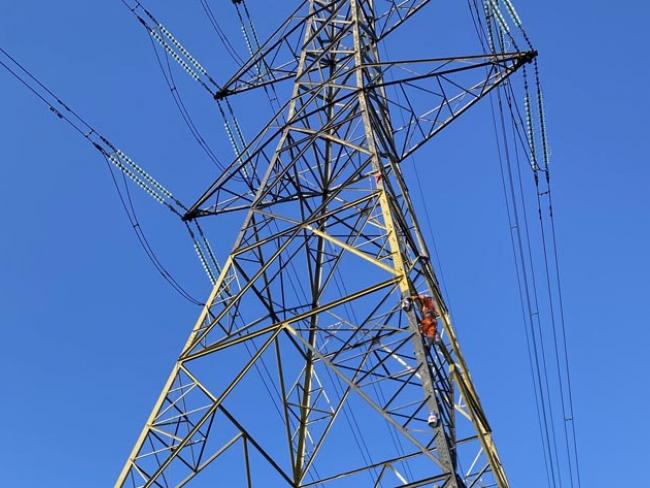The headlong rush into what are still unreliable and inadequate ‘green’ technologies is putting at risk the energy security that the country requires to maintain and develop modern life…
Energy is the capacity to do work. Civilisation is only possible because humans have learned how to change energy from one form to another.
The application of energy underpins every single aspect of our lives. It is needed at work to drive machinery, power computers, melt steel, enable communication, move commodities from place to place, and in the manufacture of machinery, appliances and gadgets – the list is endless.
We need energy at home to provide heat, enable us to cook, to travel and to enjoy leisure time. Without energy, our world would be in darkness at night.
In the modern world, the age of electricity, energy must be readily available, reliable and affordable. As the industrial revolution began in Britain, steam engines heated by coal led the way, with oil and gas later on – all increasingly used to generate electricity.
Coal
Mining coal by hand was notoriously hazardous, with the constant risk of death by disease, explosion or mine collapse. But society, and miners themselves, did not ask for coal to be outlawed. Instead the process was mechanised.
Cutting machines of ever greater sophistication replaced the pick and shovel. Gas detection supplanted the Davey lamp and the canary. Better ventilation improved the working environment at the coal face, along with more advanced medical facilities.
Then when the unionised miners, in the 1970s, became too successful for the employers at defending their industry, a new agenda emerged characterising coal itself as the enemy. This found an echo with the environmental crusaders at the time, and the war against fossil fuels – and mining in general – began in earnest.
Funding
Today, scientists who don’t toe the official net zero emissions line find it hard to secure funding for research, or to get their work published.
The prevailing dogma is that renewable energy will meet our need for available, reliable and affordable energy. Although renewable energy has come a long way, it cannot be described as readily available and reliable.
Wind and sun are intermittent. Any energy they generate that cannot be used at once is wasted unless it can be stored for use later – and that’s the problem. Pumped storage is proven, but isn’t scalable to the degree required. Giant battery arrays are not proven technology, even at the present small scale. Both come with downsides and limitations.
Affordability
And what of affordability? Earlier this year, Keir Starmer promised the launch of a publicly funded body, Great British Energy, claiming it would provide lower bills and energy security. The reality may turn out to be otherwise.
Break down the promises of Great British Energy and you find that there is little new and nothing to suggest that Labour have discovered an answer to cheaper, renewable energy. Instead there’s a great deal of magical thinking and over-reliance on one optimistic consultancy report.
And the plans, such as they are, rely almost wholly on private sector investment to supply funding. It’s just a variation on the present market-driven subsidy model.
And given Labour’s history, it could end up like the private finance initiative, transferring public money to the private sector in bucketloads.
Pipe dream
Since it is most unlikely that renewable energy will come on stream in the volume required within the timelines required by government policies, the promise of energy security is another pipe dream. In fact the present government has endorsed its predecessor’s policy of building more undersea connectors to import electricity and further increase our energy dependence.
‘The carrot of new green jobs to replace those sacrificed on the net zero altar is proving to be nothing more than a stick to accelerate the decline of jobs in essential industries like steel…’
The carrot of new green jobs to replace those sacrificed on the net zero altar is proving to be nothing more than a stick to accelerate the decline of jobs in essential industries like steel. This approach, increasing Britain’s dependency on others while calling it “security”, is not confined to industry.
Our agriculture, a byword for quality, is also threatened. Giant onshore wind and solar farms are on their way, along with the expansion of housing and industry in green belt land.
To do all this, planning controls will be dropped, with Angela Rayner continuing the policy of her predecessor, Michael Gove. Local opposition will not be tolerated – ironic when you consider the policy of even greater devolution.
But this approach isn’t working. Unconvinced by the dogma local campaigns are springing up against windfarms and green belt development, for example led by the Calderdale Windfarm Action Group, and the residents in Ansty, Warwickshire.
Opposition in Europe
Europe-wide the decision to set 2050 in law as the date to achieve net zero is facing mounting popular opposition and a growing recognition of its practical impossibility. In all likelihood the government of the day will be compelled to face reality and shift the date.
This of itself will not halt the job losses that have accompanied this headlong rush to ever greater dependency. If we desire to be truly independent, in energy as in other essentials, we will have to work out how to do it for ourselves.
A change of government changes nothing. We need to reposition our local fights into a collective, nationwide response to attacks on our country and our way of life. But we must also start to discuss what we do want for our country and our future.

